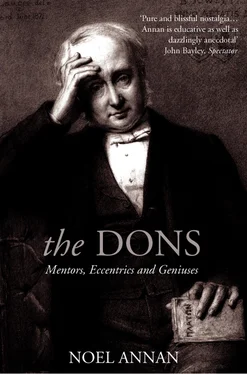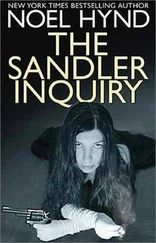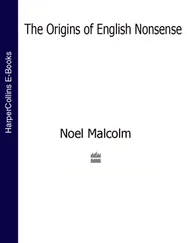Froude was a handsome, dashing young man of a well-born Devon family and Newman fell in love with him. There are always some dons who like to shock and Froude was one of them. He was a fanatic. Coming from a High Church family, he hated Protestantism, detested the Reformation and ridiculed the Thirty-Nine Articles. So did Newman’s brother-in-law Tom Mozley, who declared that the Catechism was like a millstone round the neck of the Church. The Puseyites, as they began to be called, spread their teaching through pamphlets they called ‘Tracts for the Times’ – tracts which later became learned treatises. Many of the tracts were designed to show how many medieval practices, long since abandoned, should be revived. The first tract Pusey wrote was on the spiritual benefits of fasting.
In 1836 Froude died of tuberculosis and Newman wrote a preface to his Remains , in great part a transcription of his diaries. No young man who is earnest and has a mission in life should allow his diaries to be published. Froude’s descriptions of his ascetic practices, and his self-examination of his deeds, his thoughts, his motives, revealed him to be a prig; but far more damaging were his praise of clerical celibacy, his devotion to the Virgin Mary, his contempt for the heroes of the English Reformation – Froude once said that the best thing about Cranmer was that he burned well. Before the year (1838) was out, the irrepressible champion of Protestantism, Charles ‘Golly’ Golightly, got up a subscription to raise a memorial in Oxford to the Protestant Martyrs, and impaled Newman and Pusey upon a dilemma: to contribute or not to contribute? They havered; and then withdrew. From then on they were suspect.
Dons are apt to give way to a temptation that afflicts many of us. They cannot resist ridiculing their opponents. Newman pulverised his. When a professor preached against Froude, and went on to doubt whether Newman and Keble were sound men, Newman sat up all night fashioning a reply that twitted the professor from pillar to post. He was to do the same years later when, in the first chapter of his Apologia , he turned Charles Kingsley into a figure of fun. But dons who possess the gift of writing devastating reviews of other scholars are often sullen and prickly when they themselves are attacked. Newman wrote indignant letters to his adversaries and to old friends.
The habit of rebuking those whom he considered were betraying the Church grew on him. What others called intolerance he called adherence to principles. He was jeered when he refused to conduct the marriage of a parishioner called Jubber because she was the daughter of a Baptist pastry-cook and had not been baptised according to the rites of the Church of England. Arnold, by now headmaster of Rugby, was a special target for his jokes – Arnold had once published an ill-judged book on reform of the Church so that Dissenters (but not Quakers, Unitarians or Roman Catholics) might be deemed to be in communion with Anglicans. Newman was reported as saying – his throwaway lines were quoted everywhere – ‘But is Arnold a Christian?’ He had not in fact quite said that. Someone had said of a German theologian who the Tractarians suspected was unorthodox, ‘Arnold said he was a Christian’: to which Newman replied with a laugh, ‘Arnold must first show that he is a Christian himself.’ After Newman’s campaign against Hampden an article came from the School house at Rugby. It was titled ‘The Oxford Malignants’, and it stigmatised Newman and his followers as persecutors.
By 1839 Newman had lost the support of the old High and Dry party. In 1841 he scandalised Oxford beyond hope of redemption. That was the year when he published Tract 90, just before his fortieth birthday. In it he declared that the Thirty-Nine Articles in the Prayer Book, though they were conceived in an uncatholic age, could be ‘subscribed by those who aim at being Catholic in heart and doctrine’. Newman still believed that the Church of Rome was wrong in practice. But in dogma? Even though some of the articles expressly condemned Roman beliefs, Newman argued that a way could be found to reconcile the two churches. Indeed the articles required re-casting. ‘Let the church sit still,’ he wrote, ‘let her be content to be in bondage … let her go on teaching with the stammering lips of ambiguous formularies.’ The time would come, so Newman’s reader inferred, when the Church would be reunited with Rome.
Tract 90 confirmed what High Churchmen as well as Evangelicals had feared. It convinced them that Newman was a popish agent infiltrating the Church of England to bring it over to Rome. All but two of the heads of houses condemned it, bishop after bishop penned charges denouncing it. The row was not a theological dispute alone. It penetrated to the heart of academic life. The Provost of Oriel refused to write testimonials for those candidates for ordination known to admire Newman and Pusey. The new brand of High Churchmen had little hope of being elected to fellowships. Colleges changed the hour of hall dinner on Sunday to prevent their undergraduates from attending St Mary’s, where Newman preached. Tittle-tattle about the latest Tractarian perversions replaced urbane conversation. A lady in an omnibus turned to the clergyman next to her and asked him whether he realised that each Friday Dr Pusey sacrificed a lamb. ‘My dear Madam, I am Dr Pusey, and I assure you I do not know how to kill a lamb.’ Tell-tale informers flitted about the streets insinuating, intriguing and whispering that so and so was unsound, another a known Romaniser, a third had been seen going to Littlemore, where Newman was conducting a retreat in which each day was governed by monastic discipline from Matins and Laud to Vespers and Compline. Newman had become the most notorious don in Oxford.
In 1842, the year after Tract 90 was published, Newman in effect retired as a don. He moved to Littlemore, a village outside Oxford, to lead a life governed by monastic rules and even penances such as hair-shirts and whips. The country, as well as Oxford, waited for him to convert to Rome. They waited for three years. Then at last he took the fatal step.
When Newman went over to Rome, the effect was cataclysmic. Dozens followed him – to the grief and fury of their families. He left behind him far more who felt betrayed. They believed he had found in Anglicanism the via media between vulgar Protestantism and Roman idolatry. For him, too, it was tragic: Keble and old Dr Routh, the President of Magdalen, did not shun him, but many of his closest friends broke with him for ever. Of his own family all were estranged except for one sister.
Yet Newman had one further contribution to make as a don. Some years later as a Roman Catholic priest he was appointed President of the new Catholic university in Dublin. Was that university to be a denominational university for Roman Catholics as one bishop wanted? Or was it to be, as another wanted, solely for Irishmen and a spearhead against the English ascendancy? Newman wanted neither. He soon resigned but the experience inspired him to write his academic utopia, The Idea of a University .
‘For all the complicating effect of its religious setting,’ wrote Anthony Quinton, *‘there is still no more eloquent and finely judged defence of intellectual culture than Newman’s.’ Pater thought it perfection in its own sphere, just as Lycidas was the perfect poem. G. M. Young considered that all other books on education could be pulped so long as we were left with Aristotle’s Ethics and Newman’s Idea . †
The university, Newman argued, was a temple for teaching universal knowledge. Students should study the sciences that advance knowledge and the arts and professions relevant to everyday life. But not vocational subjects; nor subjects that lack general ideas – antiquarianism is not history. The university did not exist to create knowledge. Its purpose was to disseminate ‘the best that is known and thought in the world’, to use his admirer Matthew Arnold’s words. Of course, the teachers should ‘study’, but the notion of systematic research did not swim into Newman’s ken. Originality, discovery, students dedicated to a single branch of learning, were contrary to his idea of a university. He accepted that some scholars want to devote themselves exclusively to study: let them do so – but in an institute. Nor did he sanction students studying whatever took their fancy – what the Germans called Lernfreiheit .
Читать дальше












